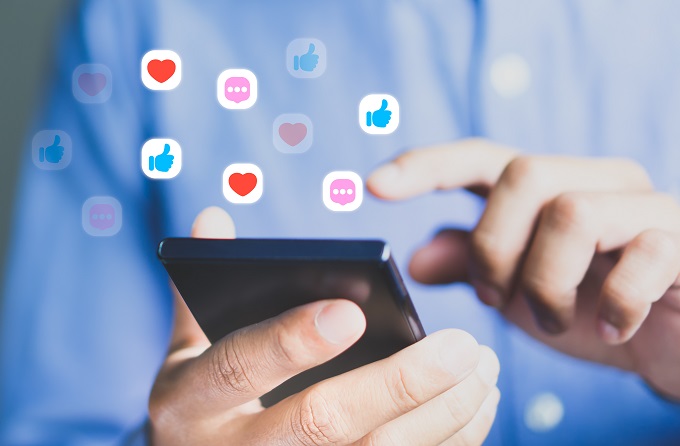
© Worawut - stock.adobe.com
<h3><strong>Scrolling through Facebook or arguing on Twitter may not be as bad for our mental health as we feared, according to new research from the University of Auckland.</strong></h3>
<p>In one of the largest studies of its kind to date, Dr Sam Stronge from the University’s School of Psychology used the <i>New Zealand Attitudes and Values Survey</i> database to question almost 19,000 New Zealand adults on their use of social media and their psychological wellbeing.</p>
<p>The results showed a small positive association between social media and psychological distress, with every extra hour spent using social media in a given week associated with a slightly higher level of psychological distress as measured on the Kessler-6 scale.</p>
<p>That scale asks people questions such as how many times in a given period they feel hopeless, or how many times in a given week they feel depressed, and to rate the strength of those feelings on a scale from 0-4. A high score on the scale indicates someone may be struggling with serious mental illness.</p>
<p>“Previous international research has found that the way we use social media, by comparing ourselves to others for example, can make negative effects stronger, but overall we found that social media has very little to do with New Zealanders’ mental wellbeing,” Dr Stronge says.</p>
<p>Extrapolating the results from the study, the researchers estimated people would need to spend a huge amount of time on social media – you would need 29 hours in a single day &#8211; to experience a significant negative effect.</p>
<p>Unlike similar research, this latest study asked how people reported feeling after using social media compared to how they felt after doing a range of other daily activities such as looking after children, watching television or playing computer games.</p>
<p>Surprisingly, there was only a small difference in reported psychological wellbeing whether using social media or doing other ordinary things.</p>
<blockquote>
<p>“We accounted for as many variables in the data as possible so that we could accurately see how good or bad one hour of social media was for people’s mental wellbeing and those results couldn’t be explained by anything else,” says Dr Stronge.</p>
</blockquote>
<p>Another aspect of the study was that, unlike much of the previous research which has focused on adolescents, this one questioned adults aged 18 to 95 years.</p>
<p>The <i>New Zealand Attitudes and Values Study</i> is a longitudinal national probability study of social attitudes led by Professor Chris Sibley from the University of Auckland.</p>
<p>The full paper <i><a href="http://www.liebertpub.com/doi/full/10.1089/cyber.2019.0176" target="_blank" rel="noopener noreferrer">Social Media use is (weakly) related to Psychological Distress</a></i> is published in <i>Cyberpsychology, Behaviour and Social Networking</i></p>

NZCER found generative AI tools are frequently used to support teaching and learning in primary…
The Ministry decision to discontinue a reading resource over kupu Māori has angered the sector…
NCEA was designed to broaden educational success, explains David Pomeroy from the University of Canterbury.
More than just a break from the classroom, a visit to a zoo or wildlife…
Without proper maintenance and care, trees can become a hazard. Are your trees in need…
Loneliness and social disconnection negatively impact wellbeing. A new WHO report finds teens feel the…
This website uses cookies.